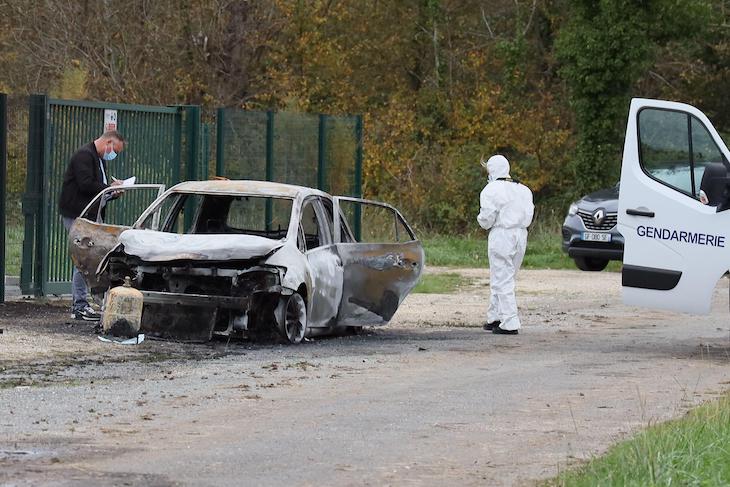A man shouting ‘Allahu Akbar’ drove his car into a crowd on France’s Ile d’Oléron this morning. At least ten people on the popular holiday destination – situated off the Atlantic Coast – were injured, and three are in a critical condition. Police arrested the driver, a 35-year-old man with a history of petty crime. A search of his vehicle revealed some gas cylinders.
Among the injured is 22-year-old Emma Vallain, a parliamentary assistant to Pascal Markowsky, an MP in Marine Le Pen’s National Rally. A rising star in the party, she took part in a televised debate at the weekend about the current political deadlock in France.
Jordan Bardella, the president of the National Rally, offered his thoughts to all the injured but made no specific reference to the motivation of the suspect.
Eric Zemmour, leader of the Reconquest Party, also took to social media in response to the incident. Extending his sympathy to those in hospital, Zemmour added: ‘Just a few years ago, places like the Ile d’Oléron were havens for those who still wanted to live in an unspoiled France. Today, the situation is such that we are seeing jihadists emerge all over France.’
These extremists fall into the category of ‘Jihad of Atmosphere’, the phrase coined by Gilles Kepel, France’s leading expert on homegrown Islamism. Only yesterday, Kepel was on television, discussing his latest book, Anti-terrorism: the Hunt for Jihadists.
13 November will mark the tenth anniversary of the Isis attack on Paris, a series of coordinated massacres that took the lives of 130 people. In the decade since, explained Kepel, Islamist terrorism has evolved.
Isis is not the force it was, and the intelligence services are far more effective in tracking and dismantling networks. But the ideology has not diminished. On the contrary it has spread, seeping into schools, universities and society in general.
The most recent attacks in France – such as the murders of the schoolteachers Samuel Paty in 2020 and Dominique Bernard three years later – have been carried out by young individuals radicalised online – the Jihad of Atmosphere.
Kepel co-authored the book with Jean-François Ricard, who was France’s national anti-terrorism prosecutor from 2019 to 2024. In a recent interview in Le Figaro, Ricard expressed his fear that a new generation of Islamists had Europe in its sights.
Cultivating a sense of victimisation is at the heart of the Islamists’ strategy
As examples, he referenced last month’s attack at a Manchester synagogue that claimed the lives of two Jews, and the three men who were arrested in Berlin in early October. ‘The majority of jihadists today act on their own initiative, responding to general calls to action, with only online contact, if any, with their instigators,’ he explained.
Ricard noted that in September Isis published a message in its newsletter urging its followers to murder Jews and Christians in Europe in order to avenge Gaza.
Cultivating a sense of victimisation is at the heart of the Islamists’ strategy. They use social media and the internet to convince European Muslims that they are oppressed. To the impressionable, the immature and those in search of an identity, it is a message that resonates.








Comments